Barrier creams are an essential part of any skincare routine, especially for those with sensitive or easily irritated skin. These creams create a protective layer on the skin to prevent irritants from coming into contact with it. In this article, we'll introduce you to six of the best barrier creams on the market and explain how to use them properly for maximum effectiveness.
Importance of using skin barrier creams

As the awareness of skin protection grows, the demand for barrier creams has increased significantly. These creams create a protective layer on the skin that shields it from irritants and helps to prevent irritation and inflammation. They are particularly useful for people with sensitive skin, as well as those who work in industries where their skin is exposed to harsh chemicals or other harmful substances. If you are facing problems with skin sensitivity and dryness, it is best to get the expert opinion of a skin specialist. At Clinikally, we provide online dermatologist consult where you can book an appointment with doctor at your chosen time slot and convenience.
How skin barrier creams differ from regular moisturizers

Skin barrier creams and regular moisturizers are similar in that they both hydrate and protect the skin. There are, however, significant differences between the two, primarily in their formulation and intended purposes. The following are the key distinctions:
- Primary Purpose: These are products that are intended to hydrate the skin by increasing its water content. They frequently contain water, humectants (which attract water to the skin), emollients (which smooth and soften the skin), and occlusive agents (which help to trap moisture). These products are designed to strengthen and reinforce the skin's natural barrier function. They frequently contain lipids, ceramides, and fatty acids, which mimic the skin's natural barrier.
- Ingredients: Moisturisers are typically made up of water, humectants (such as glycerin and hyaluronic acid), emollients (such as oils and butters), and occlusive agents (such as petrolatum or beeswax). These creams contain ingredients that have been specifically selected to repair and improve the skin barrier. Ceramides, cholesterol, fatty acids, and other lipid-based components are necessary for a healthy skin barrier.
- Formulation: These products are designed to provide immediate hydration and relief for dry skin. They may have a lighter texture and be suitable for everyday use. These creams typically have a richer and thicker consistency because they are intended to provide a more substantial barrier to the skin. They may be recommended for people who have compromised or damaged skin barriers.
- Intended Users: Suitable for daily use by people with normal to mildly dry skin to keep skin hydrated. Designed specifically for people with compromised skin barriers, such as those suffering from eczema, dermatitis, or extremely dry and sensitive skin.
- Treatment Focus: These products are focused on providing general hydration and maintaining skin health. These creams work to repair, strengthen, and restore the skin barrier function.
While there is a distinction between skin barrier creams and regular moisturisers, some products may have functions that overlap. Individuals with specific skin concerns or conditions should seek the advice of a dermatologist to determine the best product for their needs.
The role of skin barrier creams in dermatology

Skin barrier creams are important in dermatology, particularly in the treatment of skin disorders characterised by a weak or impaired skin barrier. The skin barrier, also known as the stratum corneum, is the skin's outermost layer that protects the body from external environmental elements, prevents water loss, and maintains general skin health. Dermatologists frequently recommend or prescribe skin barrier creams for a variety of reasons, including:
-
Restoration of the Skin Barrier: Ceramides, fatty acids, and cholesterol, which are key components of the natural skin barrier, are used in the formulation of skin barrier creams. These creams aid in the replenishment and restoration of lipids that may be inadequate in disorders such as eczema or dermatitis.
-
Management of Dry Skin Conditions: Skin barrier creams can help people with dry skin, whether it's due to genetics, environmental circumstances, or underlying skin problems. These products deliver extreme hydration and aid in moisture retention, improving skin texture and comfort.
-
Eczema and Dermatitis Management: A damaged skin barrier is frequently involved in conditions such as atopic dermatitis (eczema) and contact dermatitis. Skin barrier creams can help reduce inflammation, soothe sensitive skin, and keep moisture from escaping. They could be an important component of the overall therapy approach for various disorders.
-
Protection for Sensitive Skin: Skin barrier creams can help people with sensitive skin who are prone to redness and irritation develop a protective barrier against harsh environmental conditions, allergens, and irritants. This reduces the possibility of causing skin responses.
-
Post-Procedure Care: The skin barrier may be temporarily damaged during some dermatological operations such as laser treatments, chemical peels, or microdermabrasion. Barrier creams can be prescribed to aid healing and protect the skin during the recovery period.
-
Prevention of Irritant Contact Dermatitis: People who have employment or hobbies that expose them to irritants, such as frequent handwashing or chemical contact, may benefit from using skin barrier creams regularly to avoid irritant contact dermatitis and maintain skin integrity.
-
Protection Against Environmental Stressors: Skin barrier creams can act as a barrier against environmental stressors such as pollution and extreme weather. They protect the skin from external influences that can cause dryness and injury.
Individuals who have specific skin concerns should see a dermatologist, who can make personalised suggestions depending on their skin type, condition, and overall health. Skin barrier creams are just one part of a well-rounded skincare regimen, and they are frequently used in conjunction with other dermatological treatments.
Benefits of using barrier-repairing creams

Barrier-repairing creams are skincare treatments that are intended to reinforce and promote the skin's natural barrier function. The skin barrier, also known as the stratum corneum, protects the body from external environmental elements, prevents water loss, and maintains general skin health. Barrier-repairing creams have various advantages:
-
Protection from irritants and other harmful substances: Barrier creams create a protective layer on the skin that shields it from irritants and helps to prevent irritation and inflammation.
-
Suitable for sensitive skin: Barrier creams are particularly useful for people with sensitive or easily irritated skin, as they can help to reduce the risk of irritation and inflammation.
-
Reduced risk of infection: By protecting the skin from irritants and other harmful substances, barrier creams can help to reduce the risk of infection.
-
Moisturization and prevention of dryness: In addition to protecting the skin, barrier creams can also help to keep it moisturized and prevent dryness.
Individual reactions to skincare products might vary, so consultation with a dermatologist or skincare specialist is recommended, especially if you have specific skin concerns or conditions.
Key ingredients in barrier creams and their effects
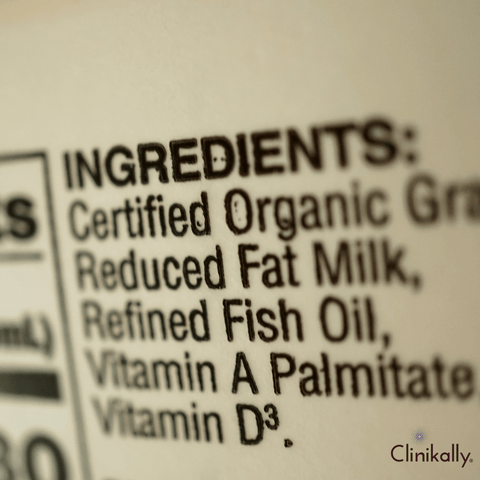
Skin barrier creams are frequently made up of several key ingredients that work together to strengthen the skin's natural barrier function and improve its overall health. Here are some of the most common ingredients found in barrier creams, as well as their effects:
-
Ceramides: Ceramides are naturally occurring lipids found in the skin's outermost layer. They are critical in preserving the skin barrier's integrity. Synthetic ceramides are frequently added in barrier creams to replace and reinforce the lipid barrier, assisting in moisture retention and protecting the skin from external irritants.
-
Fatty Acids: Fatty acids, such as linoleic acid and oleic acid, are necessary components of the stratum corneum's lipid matrix. They help to maintain the structure and elasticity of the skin barrier. Fatty acids in barrier creams nourish and strengthen the skin's barrier.
-
Cholesterol: Another lipid that is essential for the construction of the skin barrier is cholesterol. It contributes to the stability of cell membranes. Barrier creams containing cholesterol can strengthen the skin's barrier and prevent excessive water loss.
-
Hyaluronic Acid: Hyaluronic acid is a humectant, meaning it attracts and holds water. While it is more typically found in moisturizers, its presence in barrier creams can help with hydration and promote a plump, smooth skin surface.
-
Glycerin: Glycerin is a humectant, which draws water to the skin and helps to keep it hydrated. It is frequently used in barrier creams to provide both immediate and long-lasting moisture.
-
Shea Butter and Other Emollients: Emollients, which include shea butter, oils, and fatty alcohols, smooth and soften the skin. They serve to improve the texture of the skin and offer a protective barrier, lowering the danger of moisture loss.
-
Dimethicone or Petrolatum: These chemicals work as occlusive agents, establishing a physical barrier on the skin's surface to keep moisture in and irritants out. They are especially effective for people who have extremely dry or sensitive skin.
-
Niacinamide (Vitamin B3): Niacinamide has anti-inflammatory qualities and can aid in skin barrier strengthening. It may help to reduce redness, soothe irritated skin, and boost overall skin resilience.
-
Panthenol (Provitamin B5): Panthenol is well-known for its hydrating effects. It aids in the attraction and retention of water, hence improving hydration. It also contains calming and anti-inflammatory properties, making it useful for inflamed or damaged skin.
-
Allantoin: Allantoin is frequently included because of its soothing and skin-protective properties. It soothes irritated skin and aids in the healing process.
It should be noted that the formulation and combination of these ingredients may vary between barrier creams. Individuals with specific skin concerns should choose barrier creams based on their needs, and if in doubt, consult a dermatologist for personalised recommendations.
Long-term benefits of regular use
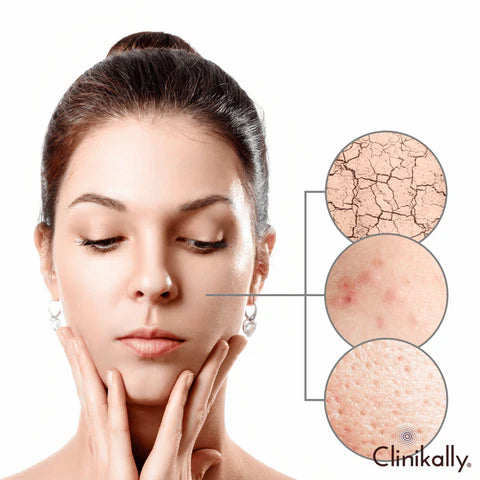
Regular use of skin barrier creams can provide several long-term benefits to the skin's health and appearance. Here are some key benefits:
-
Improved Skin Barrier Function: The use of barrier creams regularly helps to reinforce and strengthen the skin's natural barrier function. This is especially beneficial for people who have compromised barriers as a result of conditions like eczema or dermatitis.
-
Reduced Moisture Loss: Barrier creams form a layer of protection on the skin, preventing excessive water evaporation. This aids in the maintenance of optimal hydration levels, lowering the risk of dryness and dehydration.
-
Enhanced Skin Hydration: Humectants (e.g., glycerin, hyaluronic acid) are ingredients in barrier creams that attract and retain water, promoting long-term skin hydration. Well-hydrated skin appears more supple, plump, and youthful.
-
Prevention of Environmental Damage: Barrier creams protect the skin from environmental stressors such as pollutants and extreme weather. This protection helps prevent damage to the skin over time, maintaining its overall health and resilience.
-
Soothing and Calming Effects: Many barrier creams contain soothing ingredients, such as niacinamide or panthenol. Use it regularly to soothe irritated skin, reduce redness, and create a more comfortable skin environment.
-
Maintenance of Healthy Skin Texture: Emollients and occlusive agents in barrier creams soften and nourish the skin, resulting in smoother skin texture. This can result in improved skin elasticity and a more even complexion over time.
-
Support for Aging Skin: Regular use of barrier creams containing anti-aging ingredients can help to prevent fine lines and wrinkles. Ceramides and antioxidants, for example, help to maintain skin elasticity and protect against oxidative stress.
-
Prevention of Flare-Ups in Skin Conditions: Individuals with conditions such as eczema or psoriasis who use barrier creams regularly can help prevent flare-ups by maintaining a healthy skin barrier. In the long run, this can reduce the frequency and severity of symptoms.
-
Post-Procedure Care: Regular use of barrier creams after dermatological procedures such as chemical peels or laser treatments can aid in the healing process and protect the skin during the recovery phase. This contributes to better long-term outcomes.
-
General Skin Health Maintenance: Even those with relatively healthy skin can benefit from incorporating a barrier cream into their skincare routine. It protects the skin from environmental stressors and supports its natural functions.
Individual skincare sensitivities vary, and the long-term benefits of skincare may be determined by skin type, age, lifestyle, and overall skincare practise. Individual requirements should be considered when choosing a barrier cream, and speaking with a dermatologist can help improve long-term benefits.
Who should use skin barrier creams?

Barrier creams are useful for anyone who wants to protect their skin from irritants and other harmful substances. However, they are particularly beneficial for:
-
People with sensitive or easily irritated skin
-
Individuals who work in industries where their skin is exposed to harsh chemicals or other damaging substances, such as construction, manufacturing, agriculture, and health care
-
For people with skin conditions such as eczema or dermatitis, as barrier creams can help soothe and protect the skin
It's important to note that, while skin barrier creams might be beneficial for many people, everyone's skincare needs differ. If you have specific skin concerns or conditions, you should seek the advice and recommendations of a dermatologist or skincare professional.
Skin barrier creams for various skin conditions
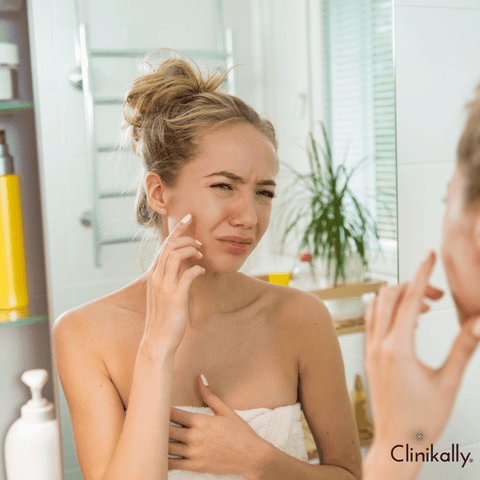
Skin barrier creams should be chosen based on the specific skin condition and individual needs. Here are some recommendations for skin barrier creams tailored to specific skin conditions:
-
Eczema: To repair the lipid barrier, look for creams that contain ceramides, fatty acids, and cholesterol. Avoid goods that include potentially irritating ingredients, such as scents and dyes.
-
Atopic Dermatitis: Select barrier creams containing ceramides, anti-inflammatory compounds such as niacinamide, and soothing components such as colloidal oatmeal.
-
Contact Dermatitis: Choose creams with few ingredients to avoid common allergies. Look for soothing ingredients such as aloe vera or chamomile.
-
Psoriasis: For scaling, look for creams that contain salicylic acid as well as moisturising elements like urea or lactic acid. Emollients and occlusives can aid with dry skin.
-
Rosacea: Look for barrier creams that contain anti-inflammatory ingredients such as chamomile and green tea extract, as well as relaxing ingredients such as aloe vera.
-
Scratch or Dehydrated Skin: To seal in moisture, use barrier creams containing a blend of occlusives, humectants (such as hyaluronic acid), and emollients.
-
Post-Procedure Care: Choose barrier creams that are made with mild, non-irritating ingredients. Look for ingredients that promote healing, such as panthenol, allantoin, and ceramides.
-
Sensitive Skin: Select barrier creams with few chemicals that are free of perfumes and common irritants. Look for calming ingredients such as calendula or chamomile.
Before introducing a new product, always perform a patch test to ensure compatibility with your skin. Additionally, consulting with a dermatologist can provide personalised recommendations based on your specific skin condition and concerns.
When to start using barrier creams in skincare routines
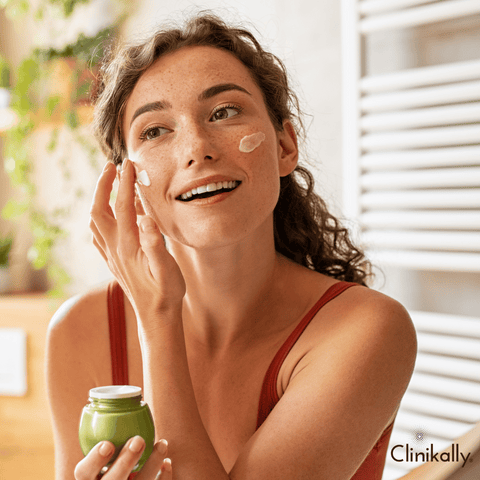
The use of barrier creams in a skincare routine can be beneficial for people at various stages of life, depending on their skin needs and concerns. Here are some general guidelines for when you should consider using barrier creams in your skincare routine:
-
Infancy and Childhood: Barrier creams can be used on infants and children, particularly if they have diaper rash or eczema. Paediatricians may recommend specific formulations for children with sensitive skin.
-
Adolescence: Teenagers' skin moisture may fluctuate due to hormonal changes during puberty. Using a barrier cream can help keep your skin healthy and prevent problems like dryness and irritation.
-
Adulthood: Adults may begin to notice changes in their skin, such as increased dryness or sensitivity. Incorporating a barrier cream into your routine can help address these issues while also supporting general skin health.
-
Environmental Exposure: Barrier creams may assist people of all ages who are frequently exposed to adverse environmental conditions such as excessive temperatures or pollutants.
-
Skin Conditions: If you suffer from skin problems such as eczema, dermatitis, psoriasis, or rosacea, a barrier cream should be an essential part of your regular skincare routine. It can aid in the management of symptoms and the prevention of flare-ups.
-
Post-Procedure Care: The skin barrier may be weakened following dermatological operations such as chemical peels, laser treatments, or microdermabrasion. Using a barrier cream after a procedure can help with healing and protect the skin.
-
Aging Skin: The skin loses moisture and suppleness as it ages. Anti-aging barrier creams can help keep skin hydrated, strengthen the skin's natural barrier, and lessen the appearance of fine lines and wrinkles.
-
Preventative Measures: Some people may choose to use barrier creams as a preventative measure, adding them into their routine to preserve ideal skin health and avoid any dryness or sensitivity issues.
It's important to remember that everyone's skin is different, and there's no such thing as a one-size-fits-all approach to skincare. The individual's skin needs, concerns, and lifestyle factors all influence the use of a barrier cream. If you're not sure whether a barrier cream is right for your skin or when to start using one, a dermatologist can provide personalised advice depending on your skin type and individual circumstances.
Top 6 skin barrier creams for sensitive skin
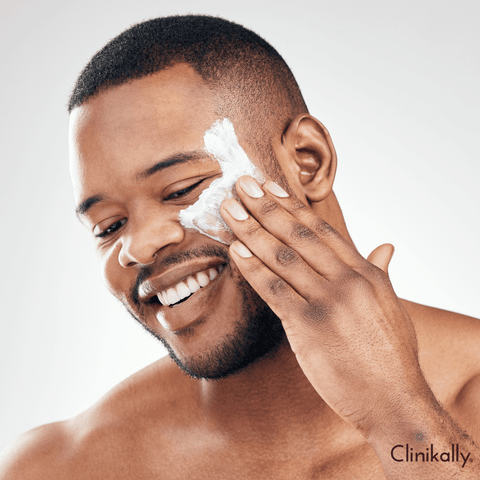
As promised, we've compiled a list of the top six barrier creams on the market. These creams are designed to protect your skin from irritants and other harmful substances, and are suitable for a variety of skin types and conditions. Whether you have sensitive skin or work in an industry where your skin is exposed to harsh chemicals, these barrier creams will provide the protection you need.
#1 CeraVe Face and Moisturizing Cream
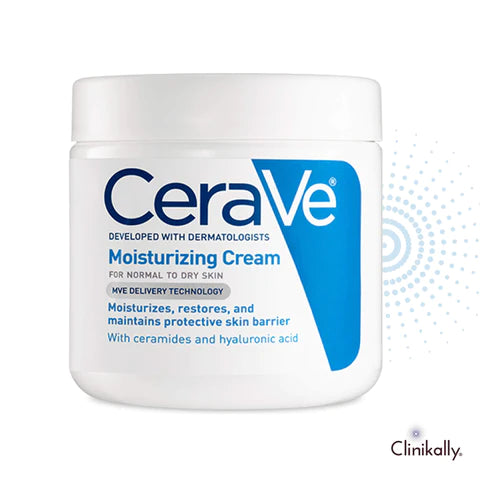
The CeraVe Face and Moisturizing Cream contains ingredients that help to strengthen and repair the skin's natural barrier. This includes ceramides, which are a type of lipid that is essential for maintaining the integrity of the skin barrier. The cream also contains hyaluronic acid, which helps to hydrate the skin and keep it moisturized.
By strengthening and repairing the skin barrier, the CeraVe Face and Moisturizing Cream can help to prevent irritation and inflammation, and keep the skin healthy and protected. This makes it an excellent choice for people with sensitive or easily irritated skin, as well as those who are looking to protect their skin from environmental pollutants and other harmful substances.
#2 Clinikally HydraSoothe Moisturiser
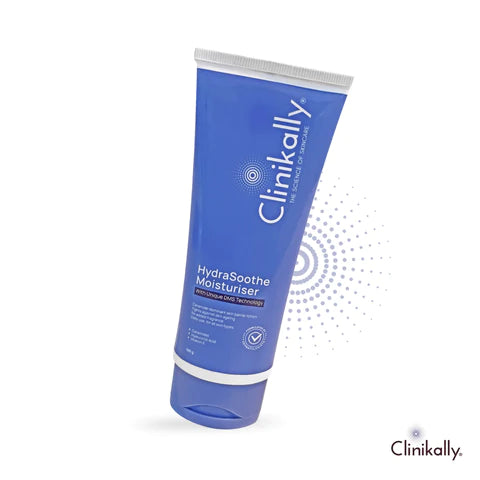
The inclusion of vitamin E and hyaluronic acid in the moisturising lotion can help to protect the skin from damage and maintain its moisture levels, respectively. Ceramides, on the other hand, help to strengthen the skin's barrier and prevent moisture loss. Overall, the Hydrasoothe moisturizer appears to be a well-rounded product that offers a range of benefits for Indian skin at an affordable price.
#3 Bioderma Atoderm Intensive Baume

Bioderma Atoderm Intensive Baume is a moisturizing balm that is specifically designed to strengthen and repair the skin's barrier. The skin's barrier is the outermost layer of the skin, which acts as a protective barrier against environmental pollutants, bacteria, and other harmful substances. When the skin's barrier is damaged, it can lead to dryness, irritation, and other skin issues.
#4 Embryolisse Lait-Creme Concentre Nourishing Moisturizer
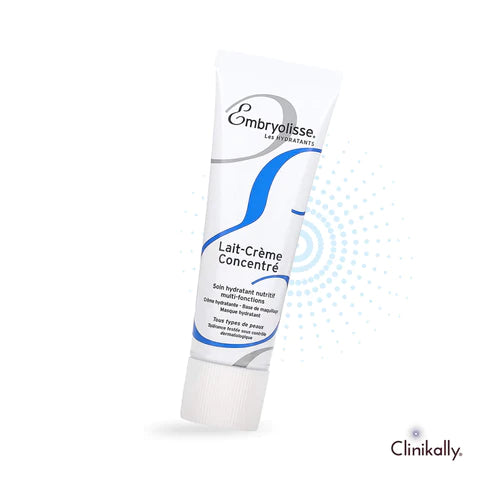
Embryolisse Lait-Creme Concentre Nourishing Moisturizer is a moisturizing cream that is specifically designed to protect and repair the skin's barrier. The skin's barrier is the outermost layer of the skin, which acts as a protective barrier against environmental pollutants, bacteria, and other harmful substances. When the skin's barrier is damaged, it can lead to dryness, irritation, and other skin issues.
#5 Physiogel Hypoallergenic Daily Moisture Therapy Cream
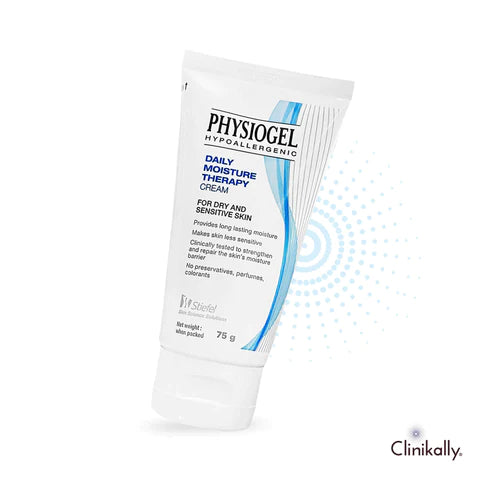
Physiogel Hypoallergenic Daily Moisture Therapy Cream works naturally and gently on the skin, repairs the moisture barrier and reduces skin sensitivity. The advanced Physiogel BioMimic formula promotes dry skin repair by supporting the natural processes of the skin. It also protects against external stimuli that can exacerbate dry and sensitive skin.
#6 iS Clinical Reparative Moisture Emulsion
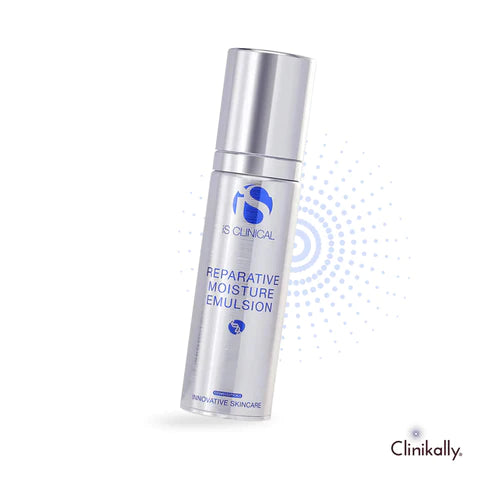
Prevent and repair DNA damage in the skin with the intensive and rejuvenating iS Clinical Reparative Moisture Emulsion, formulated with pharmaceutical-grade botanicals, peptides, and powerful antioxidants. The addition of copper tripeptide growth factor in the moisturiser helps to reduce fine lines and wrinkles by stimulating collagen production. This rich and luxurious hydrating complex helps keep your skin healthy, smooth and protected.
How to use a skin barrier cream properly

To use a skin barrier cream properly, you should first cleanse your skin to remove any dirt, oil, or makeup that may be on the surface. After cleansing, pat your skin dry with a clean towel, and then apply a small amount of the cream to your skin. Gently massage the cream into your skin using circular motions, being careful to avoid rubbing or pulling the skin too harshly. Allow the cream to absorb completely before applying any other products, and be sure to follow the instructions on the product packaging for best results. It's also a good idea to consult with a healthcare professional before using any new skin care products, especially if you have sensitive skin or a known skin condition.
Step-by-step instructions on how to use skin barrier cream properly
-
Cleanse your skin to remove any dirt, oil, or makeup.
-
Pat your skin dry with a clean towel.
-
Apply a small amount of the cream to your skin and gently massage it in using circular motions.
-
Allow the cream to absorb completely before applying any other products.
-
Follow the instructions on the product packaging for best results.
-
Consult with a healthcare professional before using any new skin care products, especially if you have sensitive skin or a known skin condition.
It may take some trial and error to find the right routine and products for you because every person has a different skin type and condition. Always follow the product's instructions and be patient, as it may take some time to see significant improvements in your skin.
Application techniques for maximum effectiveness
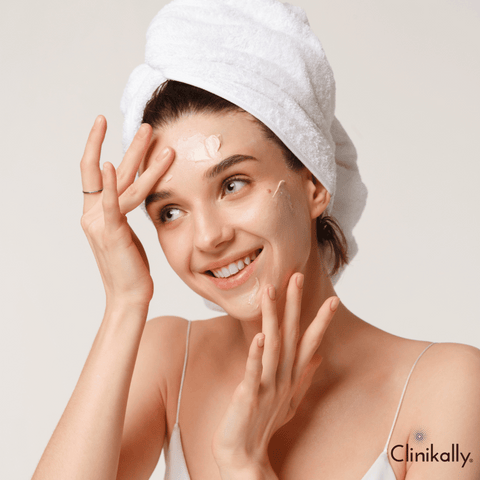
A barrier cream's efficiency is governed not only by its formulation, but also by how it is applied. Here are some tips for applying barrier creams to get the most out of them:
-
Apply to Clean, Dry Skin: Begin with a clean, dry face. Before applying the barrier cream, gently cleanse your face with a light cleanser and pat it dry. When applied to moist skin, the cream's effectiveness may be reduced.
-
Use the Right Amount: Apply an adequate amount of barrier cream to cover the entire face or affected area. Using too little may not provide sufficient protection, while using too much may lead to product buildup.
-
Apply Evenly: Spread the barrier cream evenly over the skin, paying special attention to areas prone to dryness or irritation. Make sure to cover all areas that require protection.
-
Gentle Massage: Massage the cream into your skin with gentle upward strokes. Tugging or pulling on the skin is not recommended, especially if you have sensitive or irritated skin.
-
Include the Neck and Chest: If your neck and chest are prone to dryness or you want to maintain consistent skincare, apply the barrier cream to these areas as well.
-
Allow Absorption Time: Allow the barrier cream to absorb into the skin before applying any other products, makeup, or sunscreen. This allows the active ingredients to work effectively.
-
Reapply as Needed: Consider reapplying the barrier cream throughout the day, depending on your skin's needs and the product instructions, especially after activities that may strip the skin of its natural oils (e.g., hand washing).
-
Layering with Other Products: If you have a multi-step skincare routine, use the barrier cream as the final step, especially if it is thicker or has occlusive properties. This helps seal the benefits of other skincare products applied before it.
-
Personalise for Specific Areas: The amount of barrier cream you use should be adjusted based on the specific needs of each area of your face. Use a little more on areas prone to dryness or irritation, for example.
-
Consider Nighttime Application: If your barrier cream is suitable for nighttime use, apply a slightly thicker layer before going to bed to allow for deep hydration and repair while sleeping.
-
Pair with Humidifiers: Using a humidifier in your living space during dry or cold weather can supplement the effects of a barrier cream by maintaining a more humid environment for your skin.
Remember that the effectiveness of a barrier cream is also determined by its formulation, so select a product that is appropriate for your skin type and concerns. If you have specific skin conditions, you should see a dermatologist for personalised recommendations.
Common mistakes to avoid

To maximise the effectiveness of barrier creams and support healthy skin, it is critical to avoid frequent application and usage errors. Here are some common blunders to avoid:
- Using the Wrong Product for Your Skin Type: Not all barrier creams are the same, and using the wrong formulation for your skin type can cause problems. Choose a product that is appropriate for your skin type, whether it is oily, dry, sensitive, or combination.
- Skipping Patch Tests: Before using a new barrier cream, always conduct a patch test, especially if you have sensitive skin or a history of allergies. This assists in identifying potential adverse reactions before applying the product to larger areas.
- Overlooking Ingredient Lists: Examine the ingredient list for allergens, irritants, or components that may cause your skin to react negatively. Avoid barrier creams that contain ingredients that have previously irritated your skin.
- Using Too Little or Too Much: Applying too little barrier cream may not provide adequate protection, but applying too much may result in product buildup, leaving the skin feeling oily. Follow the application recommendations provided on the product container.
- Applying to Damp Skin: Applying barrier cream to damp skin can reduce its effectiveness. To get the most out of the cream, make sure your skin is completely dry before applying it.
- Ignoring Sun Protection: While barrier creams can help keep moisture in, they are not a replacement for sunscreen. During the day, use a separate broad-spectrum sunscreen to protect your skin from dangerous UV radiation.
- Not reapplying when required: Some barrier creams may need to be reapplied throughout the day, particularly after washing hands or engaging in activities that may strip the skin's protective layer. The product should adhere to reapplication guidelines.
- Using Barrier Creams as a Cure-All: Barrier creams are useful, but they may not solve all skincare issues. They are very useful at maintaining skin barrier health, but they may not be a complete cure for issues such as acne or hyperpigmentation.
- Neglecting Consistency: The secret to skincare is consistency. Skipping applications or applying barrier creams infrequently can reduce their effectiveness over time. Create and stick to a routine that works for you.
- Using Products in the Wrong Order: Apply products in the proper order if you have a multi-step skincare routine. Barrier creams, in general, should be applied as one of the final steps, especially if they are thicker or have occlusive properties.
- Using Expired Products: Check the expiration date of your barrier cream and avoid using expired products. Expired products may not deliver the intended benefits and could even cause skin issues.
- Ignoring Expert Advice: If you have specific skin issues or conditions, consult a dermatologist. They can make tailored recommendations and assist you in selecting the best items for your skin.
By avoiding these common blunders, you can maximise the effectiveness of barrier creams while also contributing to the overall health and resilience of your skin.
Say goodbye to dry sensitive skin!

A skin barrier cream should be applied after cleansing and drying the skin. This will help the cream to be more effective, as it will be able to penetrate the skin more easily and help to repair the damaged skin barrier. It's also a good idea to apply the cream at night, as this is when the skin's natural repair processes are most active. If you're using other skin care products, such as serums or moisturizers, you should apply the skin barrier cream after these products have had a chance to absorb into the skin. As always, be sure to follow the instructions on the product packaging for best results.
Integrating barrier creams into a holistic skincare approach

Integrating barrier creams into a holistic skincare strategy entails taking into account your skin's general health and demands while using the barrier cream as part of a comprehensive routine. Here are some methods to creating a holistic skincare regimen that includes barrier creams:
- Understand Your Skin Type: Determine your skin type (dry, oily, combination, sensitive) as well as any specific concerns or conditions (e.g., acne, eczema, ageing). This comprehension will guide your product selection, including the selection of an appropriate barrier cream.
- Establish a Cleansing Routine: Begin your skincare routine by removing impurities, excess oil, and makeup with a gentle cleanser. Cleansing lays the groundwork for subsequent skincare products, including barrier creams, to be absorbed effectively.
- Incorporate Treatment Products: If you use treatment products for specific concerns (for example, serums for hydration, antioxidants, or anti-aging), apply them before the barrier cream. Allow each product to absorb completely before proceeding to the next.
- Choose the Right Barrier Cream: Select a barrier cream that aligns with your skin's needs. Look for ingredients like ceramides, fatty acids, and humectants. Consider whether you need a thicker formulation for extra moisture or a lighter one for daily use.
- Apply the Barrier Cream Effectively: Observe the previously indicated application techniques. Evenly apply the barrier cream to dry, clean skin, and let it absorb before putting on any other makeup.
- Sunscreen Is Non-Negotiable: Even if your barrier cream provides some sun protection, always include a broad-spectrum sunscreen in your morning regimen. Sunscreen shields the skin from damaging UV rays and helps to prevent premature ageing.
- Adapt to Day and Night Routines: Consider using different barrier creams during the day and at night. Day creams may emphasise protection and hydration, whereas night creams may emphasise repair and regeneration.
- Holistic Lifestyle Practices: Adopting healthy lifestyle practises will help your skin health from the inside out. Stay hydrated, eat a healthy, antioxidant-rich diet, get enough sleep, and manage stress, as all of these things can affect the health of your skin.
- Regular Exfoliation: Exfoliation should be incorporated into your routine to remove dead skin cells and promote cell turnover. This ensures that barrier creams penetrate the skin effectively and function optimally.
- Adjust Your Routine Seasonally: Change your skincare routine according to the seasons. For example, in the winter, when the air is dryer, you may require a richer barrier cream, while in the summer, you may require a lighter one.
- Consult with a Dermatologist: If you have specific skin concerns or conditions, consult with a dermatologist to develop a personalised skincare regimen. They can recommend barrier creams and other products based on your specific requirements.
- Consistency Is Key: Maintain a steady regimen. Skincare is a long-term commitment, and constant application of barrier creams and other treatments is required to achieve the best results.
Remember that a holistic skincare approach entails addressing both external and interior components of well-being. Barrier creams should be used in conjunction with other parts of your skincare routine and overall lifestyle choices to promote overall skin health.
































